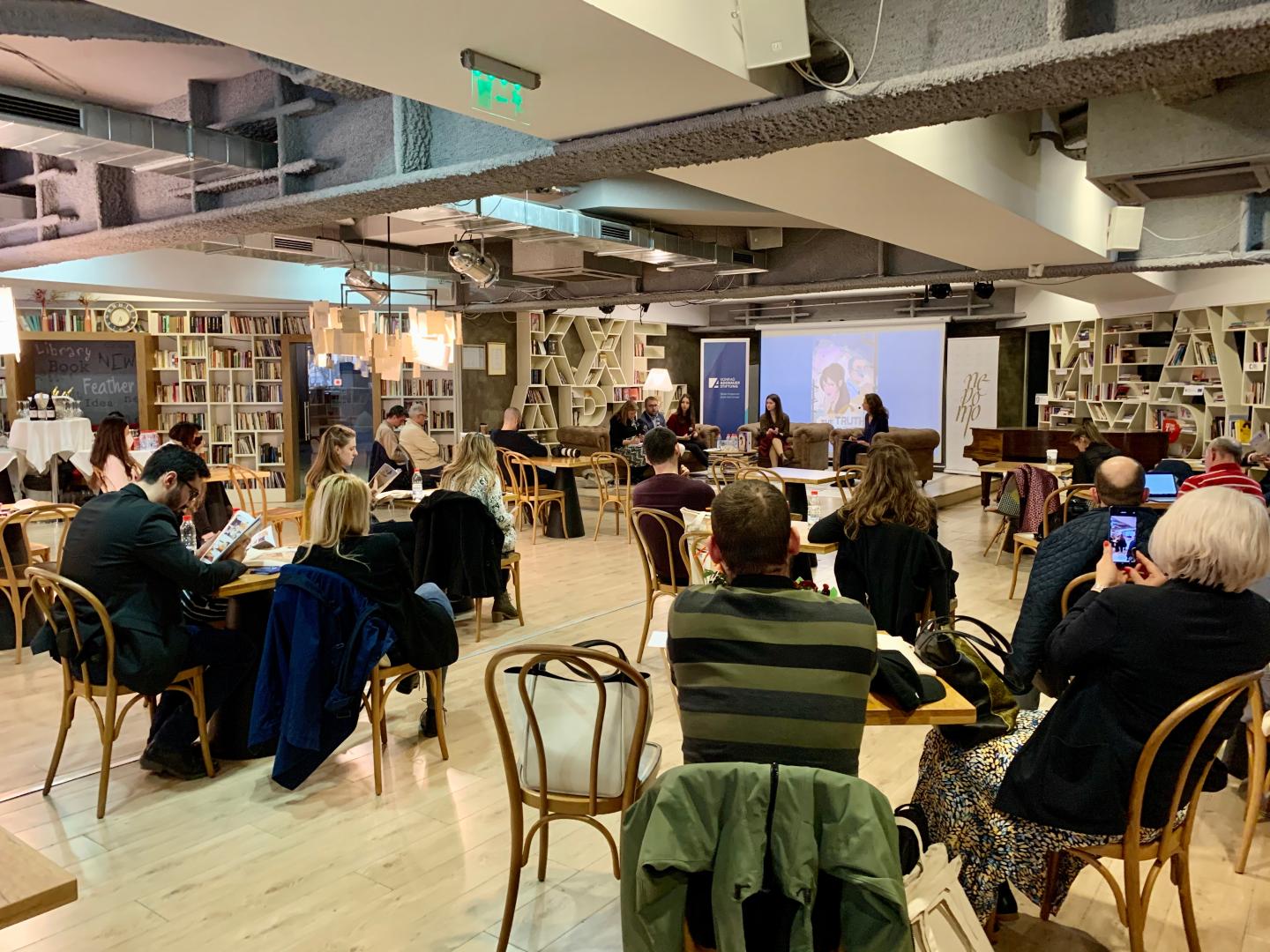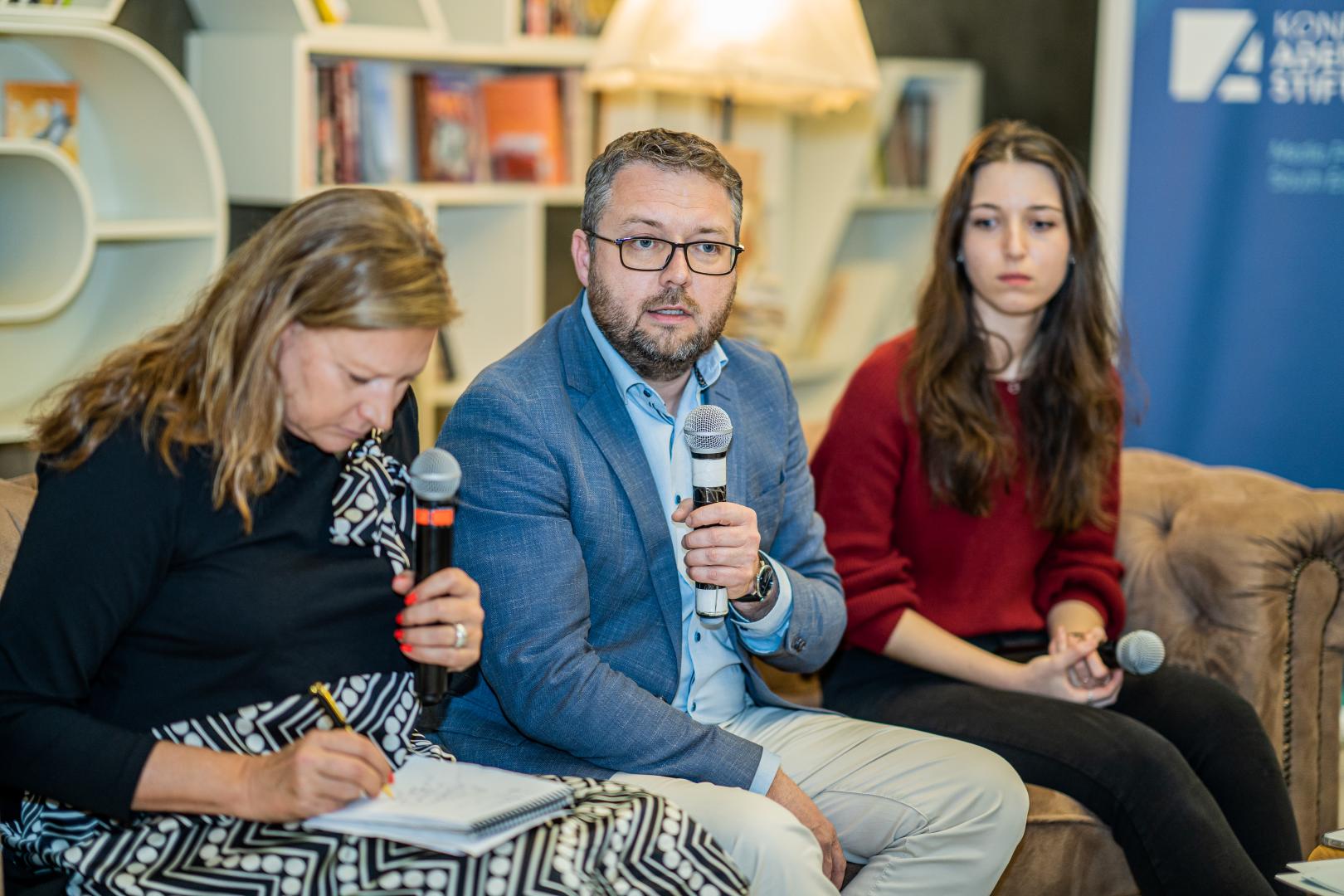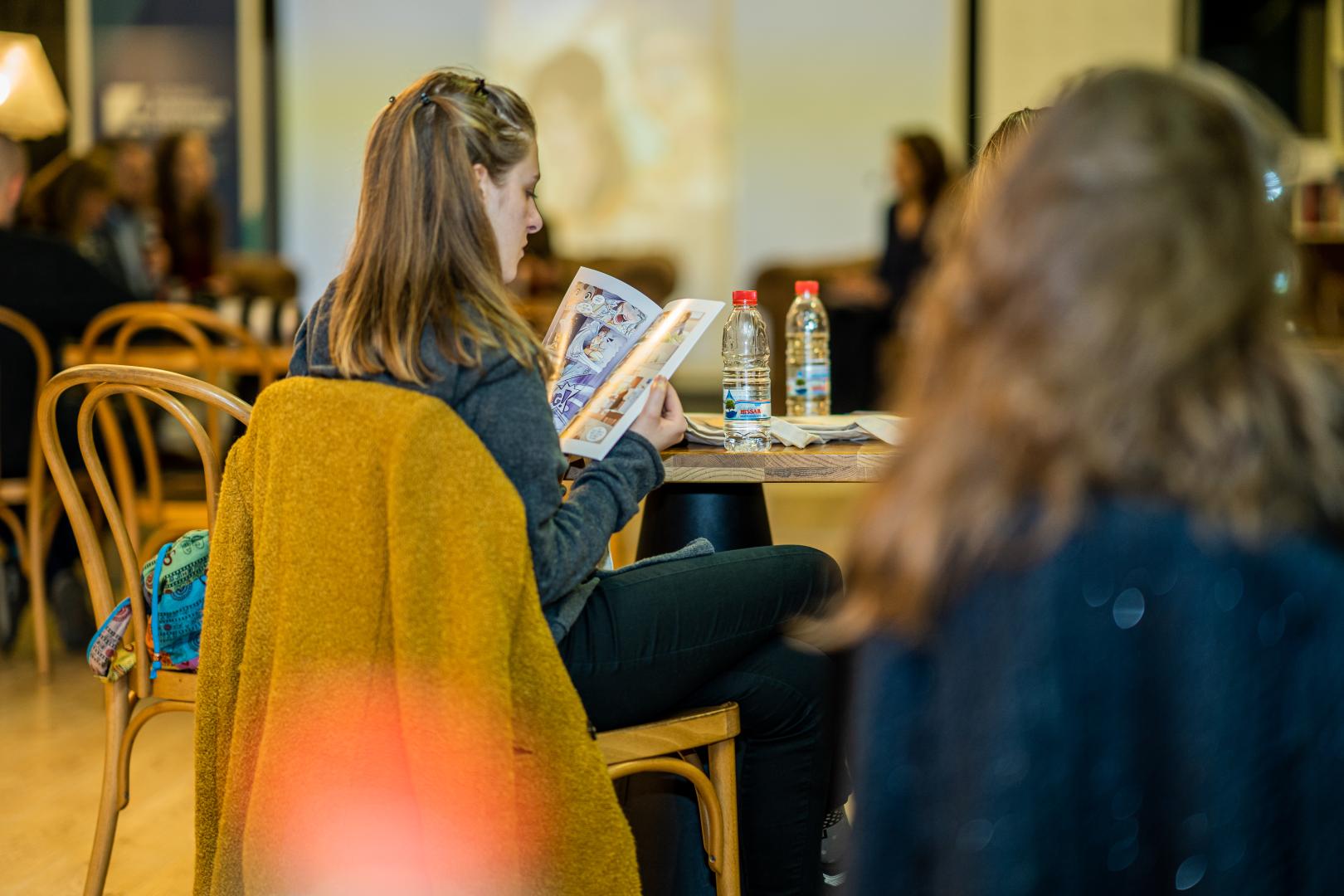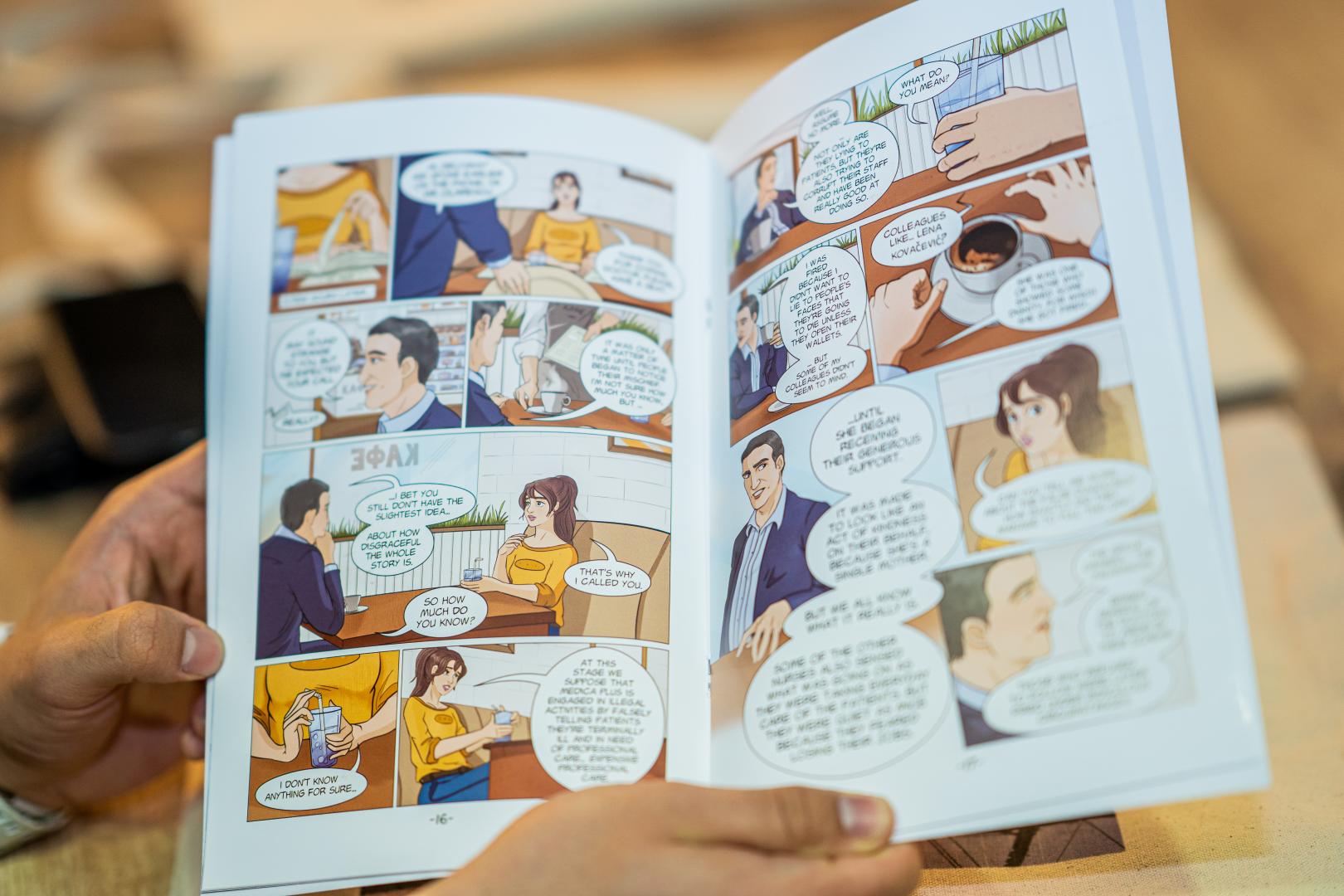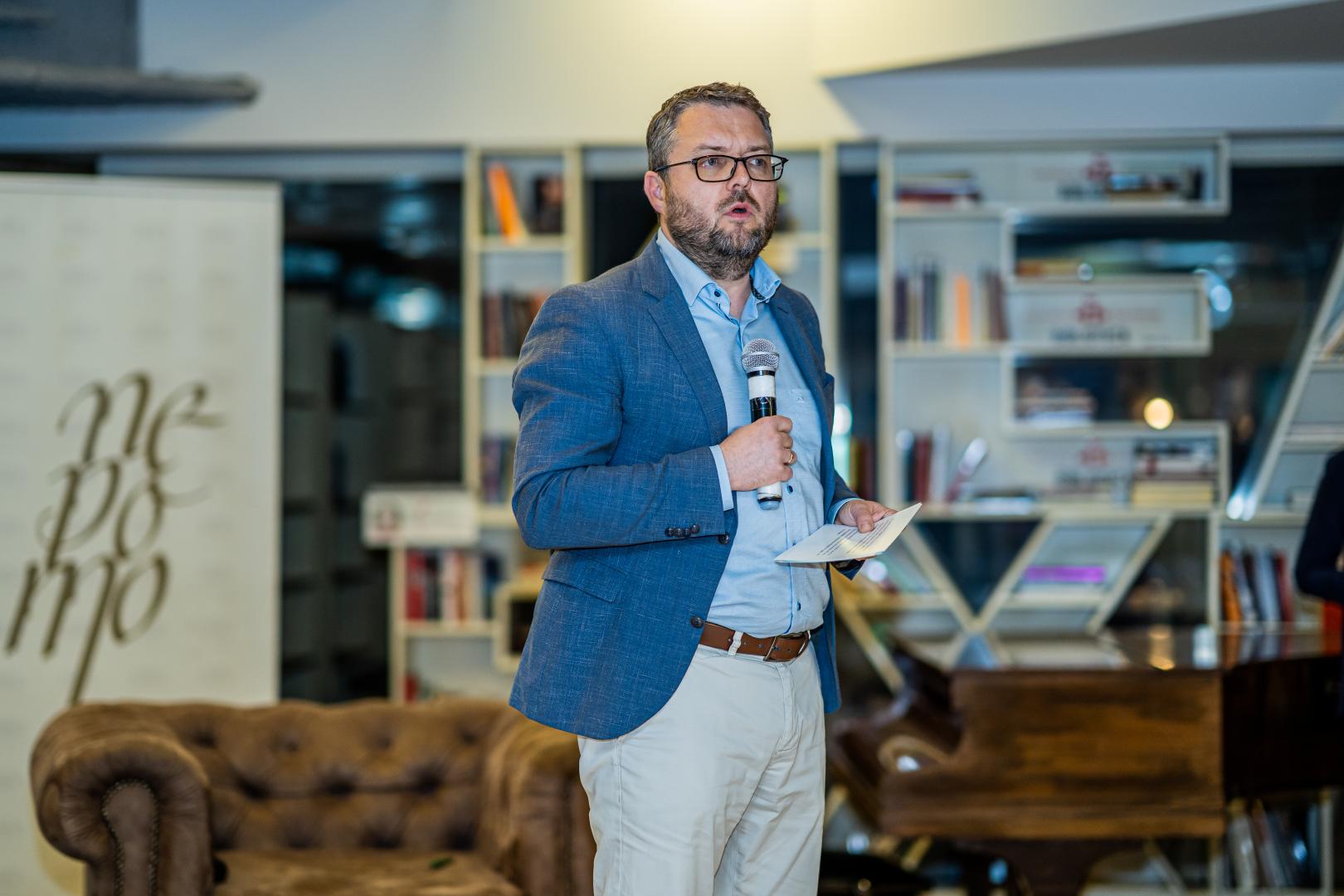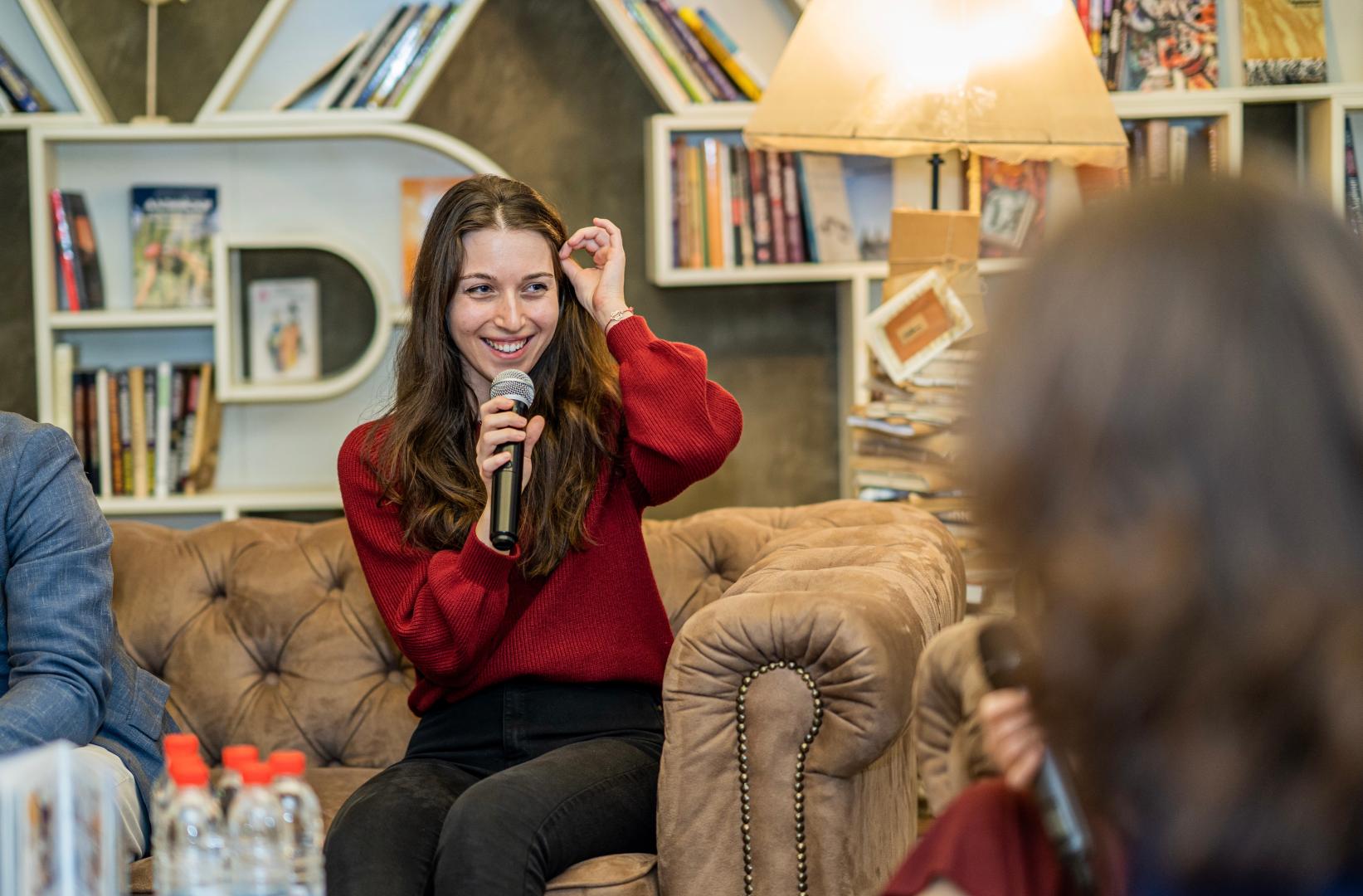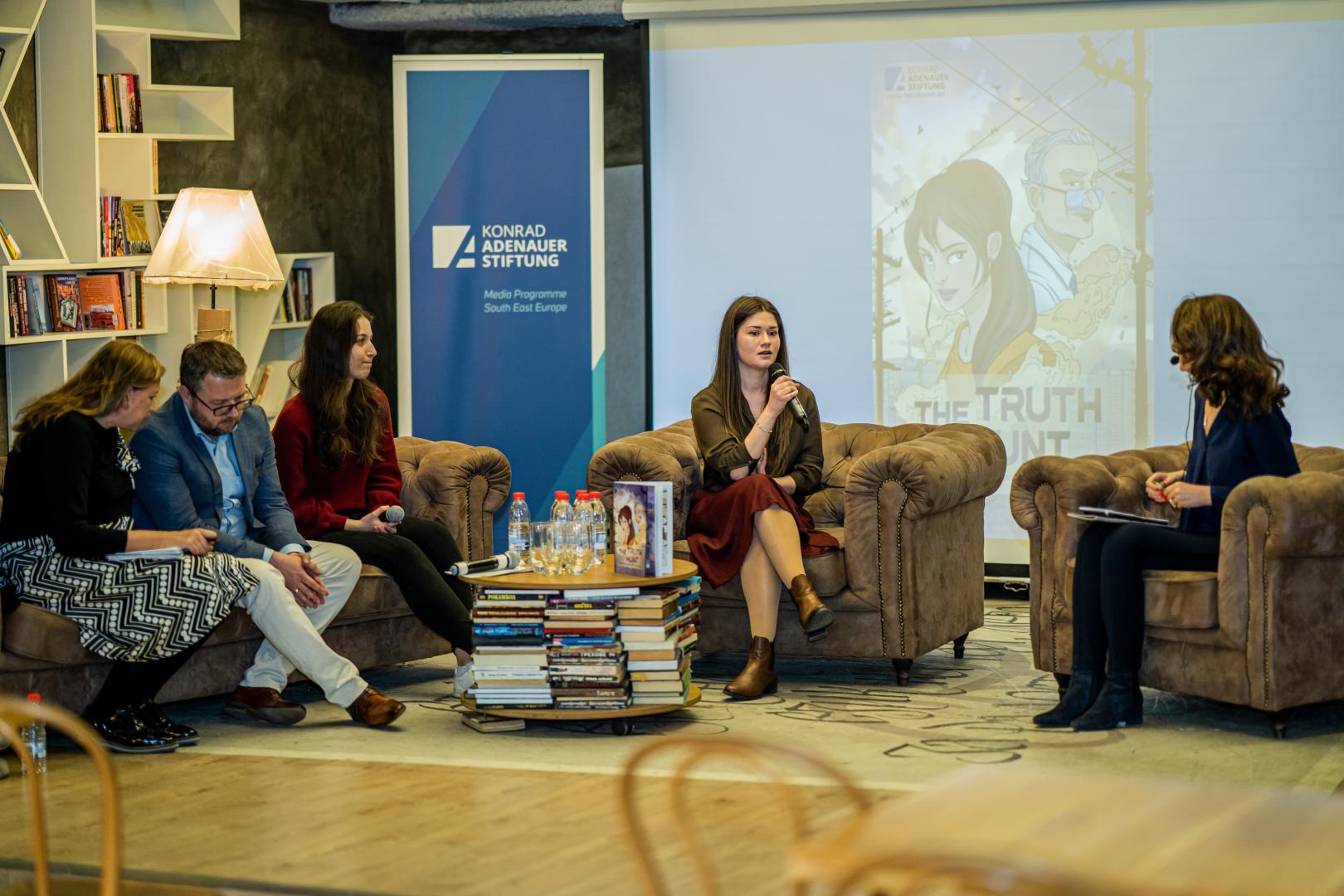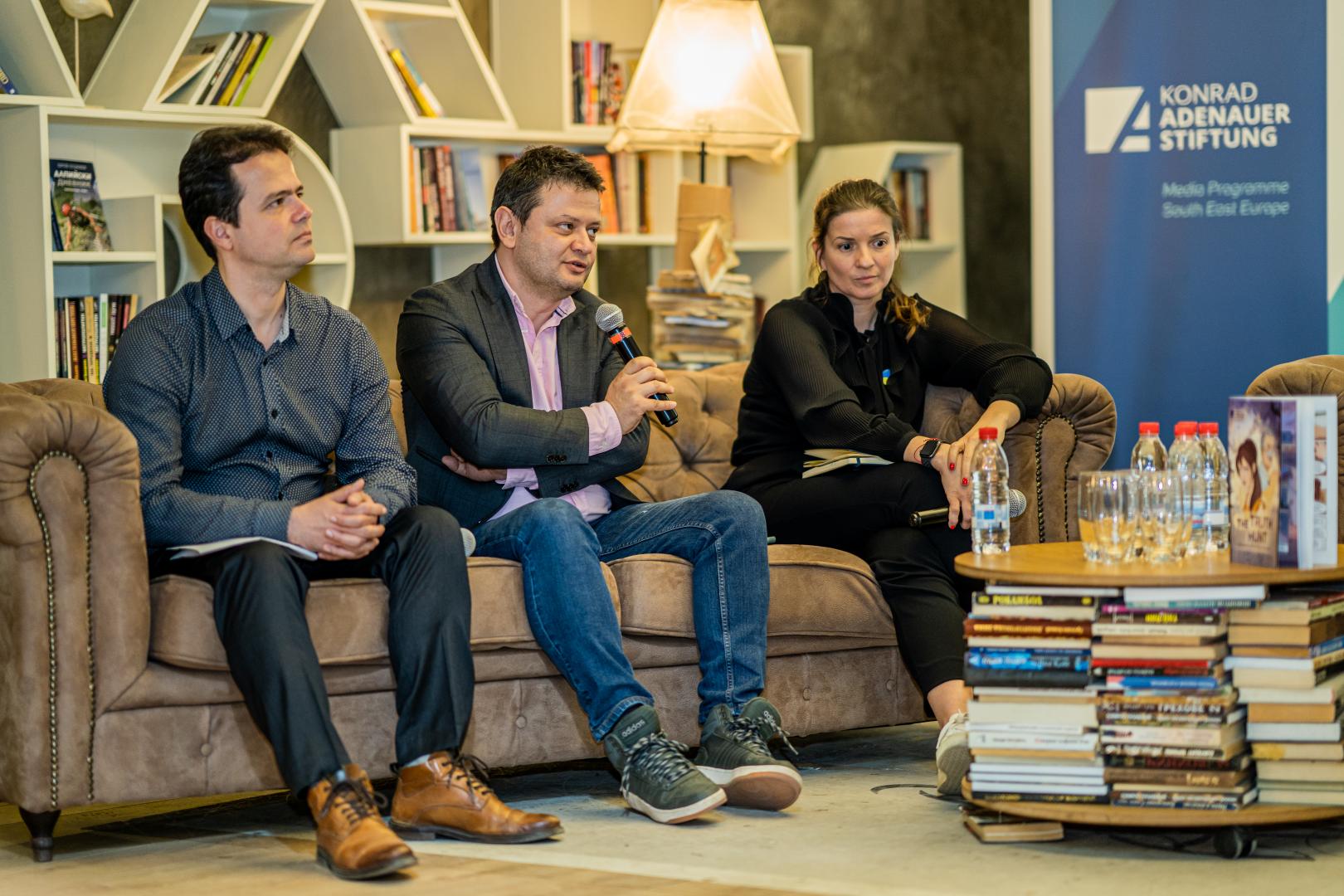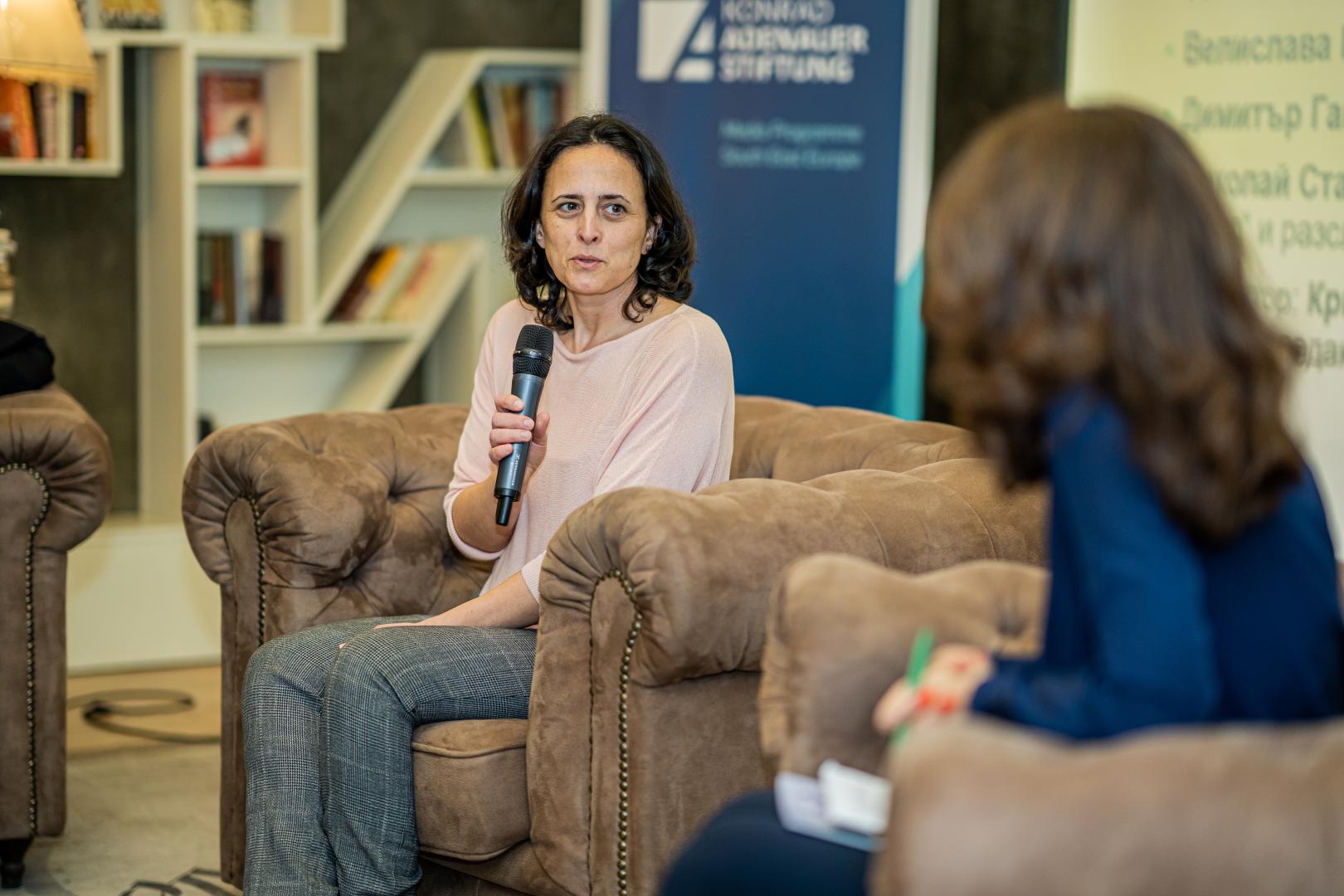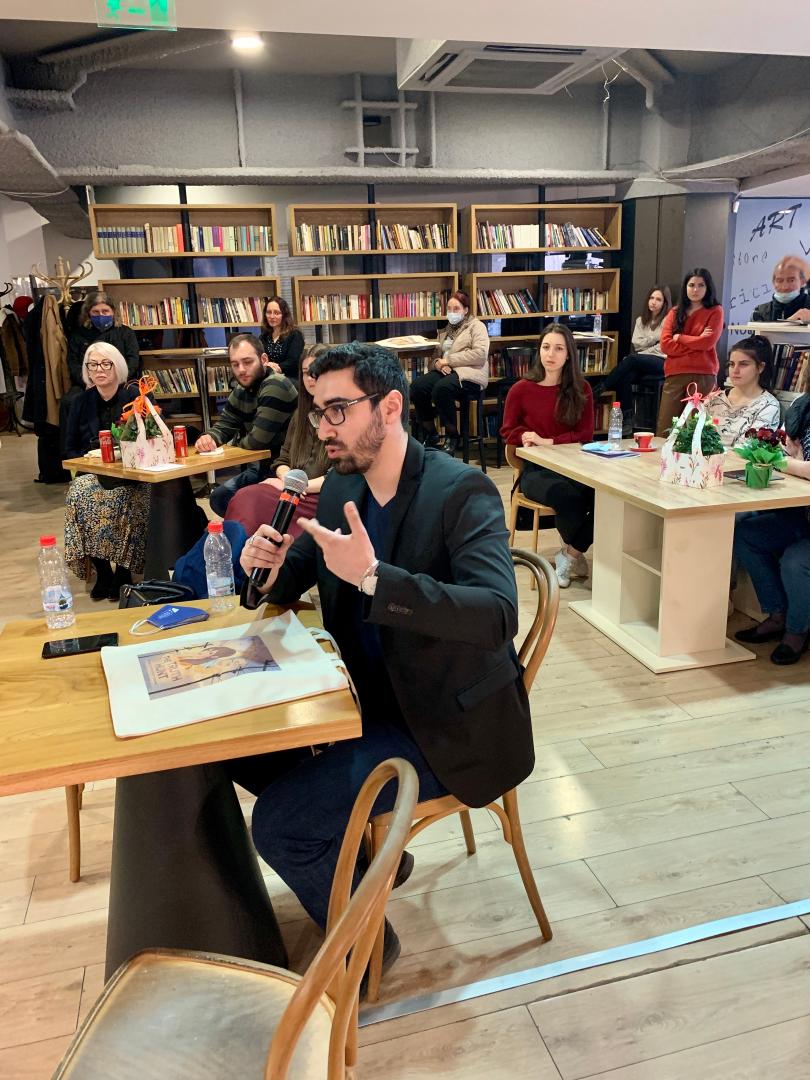On 31 March, the Media Programme South East Europe of the Konrad-Adenauer-Stiftung presented its first comic book. The comic book tells the story of the young journalist Delyana - somewhere in South East Europe, who stumbles upon a hot topic and struggles with many different problems during her investigations. In the follow-up discussion, the reality of investigative journalists' experiences and the role of investigative journalism in Bulgaria were discussed by five well-known journalists from Bulgaria.
Following the welcome by the evening's moderator, Kristina Baxanova, Editor-in-Chief of "International News" at the private television station bTV, Hendrik Sittig, Head of the Media Programme South East Europe, commented on the decision to publish a comic book: "Through this special way, this innovative way of a comic book, we want to draw attention to the numerous problems of journalists in South East Europe in addition to our traditional events and publications and thereby reach an even broader audience."
The two authors Alexia Petrova (journalist) and Ralitsa Tschobanova (illustrator) from Sofia introduced the main characters and the plot of the comic to the audience in a short version: Delyana, a young journalist, discovers the corrupt practices of a health company during an internship at a leading daily newspaper. With the help of her older colleague Simeon, she begins an investigation and has to deal with more and more obstacles. Through it all, she doesn't give up. "Corruption is a big problem," Alexia Petrova told us. "I wanted to demonstrate how corruption works and where corruption exists and that we should not be afraid to fight it."
In the following discussion, Genka Shikerova (Radio Free Europe/TV1), Velislava Popova (news portal dnevnik.bg), Dimitar Ganev (freelance investigative journalist) and Nikolay Staykov (Anti-Corruption Fond) spoke about different aspects of investigative journalism. The focus was on the quality and relevance of investigative research, audience receptivity to complicated and long investigative stories, funding, political pressure, and regional and supra-regional cooperation between journalists and media.
Kristina Baxanova opened the debate by raising the question of the role of journalists in Bulgarian society. Dimitar Ganev said: "As journalists, we should not expect to be welcomed. This means that if we are ever welcomed with a red carpet somewhere, a red light should turn on for us." The four panellists agreed that this basic sceptical attitude towards journalists resulted in problems: Authorities and companies were reluctant to answer questions, reluctant to comply with their duty to provide information. It is often difficult to obtain information that should be available to the public.
The topic of corruption was, to be sure, not left out of the discussion. Nikolay Staykov commented on the difficulties of media financing in Bulgaria and explained why the complicated financial situation of Bulgarian media is also a breeding ground for corruption: "There was research on whose money finances which media. It turned out that a large number of media outlets belong to only a few large entrepreneurs. This is of course difficult for journalists working in this tangle of ties." This unfavourable situation of the media also contributed to the establishment of the Anti-Corruption Fond, which conducts independent journalistic research, Staykov said. "We asked ourselves the question: How can independent journalism be financed?".
Another difficulty was that many investigative journalists were concentrated in the capital. Velislava Popova: "Our investigations mostly take place in Sofia. And there is actually no investigative journalism in regional and local media. But especially outside Sofia, there are a lot of corruption cases that need to be investigated." The Bulgarian media landscape also faces the challenge of creating binding journalistic standards, Popova said. Although "dnevnik.bg" and the weekly newspaper "Kapital", which are both published by the same publishing house, have drawn up an in-house code of ethics, there is a need to catch up nationwide. Despite the difficulties and hostility that journalists face time and again, she is confident about the future: "The most important thing is not to give up." Genka Shikerova agreed, adding that critical coverage, in particular, is indispensable for democracies. "If there is no strong investigative journalism, it weakens civil society. Studies have shown that then, for example, voter turnout drops."
Afterward many of the approximately fifty guests took the opportunity to contribute to the lively discussion with questions.
The comic book is available as a free e-book here.
Topics
On the Self-inflicted Causes of the Crisis in Journalism
The fire disaster in Kočani: Shock for state and society in North Macedonia
Why an independent Digital Ministry is indispensable and how it could be structured
Renewal of political parties - Digitalisation and political parties
Which News Can Still Be Trusted?



